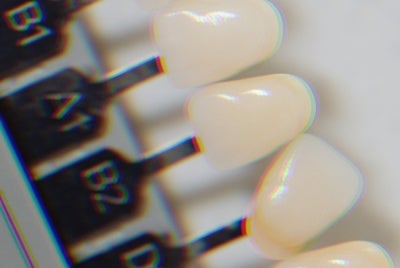Why crying might actually be good for you
We’re taught that crying is seen as a sign of weakness. The truth is, crying is a natural and healthy way to process emotions.
PAUL NG07 Feb 2025 09:00am

Believe it or not, crying releases endorphins, your body’s natural painkillers. Photo: Canva
But what about adult tears? Are they simply a sign of weakness and something to be suppressed? The truth is far more nuanced. Crying is a complex physiological process with profound impacts on both our physical and emotional well-being.
Throughout history and across cultures, crying has held diverse meanings. In some societies, it was seen as a sign of weakness, while in others, it was considered a sacred act of release. Even 'fake crying' can have some practical purpose, as seen during a recent crying contest in Kelantan.
From ancient Greek tragedies to modern-day cinema, tears have been a powerful tool for storytelling, evoking empathy and connecting us to the human condition.
THE SCIENCE OF TEARS
Far from being a simple outpouring of emotion, tears come in different forms, each serving a unique purpose.
The consistent moisture in our eyes is referred to as basal tears. These help to lubricate and protect our eyes. They also act as a protective shield, containing antimicrobial proteins that fight off infections and even aid in the repair of the delicate eye surface.
Then there are reflexive tears, triggered by irritants like smoke, onion fumes, or pollen. These tears act as a defense mechanism, flushing out unwanted invaders and helping to reduce infections. Aside from humans, some species of reptiles and amphibians also produce reflexive tears to help keep their eyes clean.
Finally, we have emotional tears, the ones that flow when we experience intense emotions – joy, sadness, anger, or frustration. These tears contain a unique blend of hormones, including stress hormones like cortisol.
THE UNEXPECTED BENEFITS OF CRYING
While we may instinctively try to suppress tears, allowing them to flow can offer unexpected benefits. Crying can act as a pressure valve, releasing pent-up emotions like anger, sadness, and frustration.
It's akin to clearing mental clutter, creating space for more positive feelings to emerge. Interestingly, crying can even improve our mood. By releasing negative emotions, it creates space for feelings of calm and peace to surface.
US-based health psychologist Grace Tworek explains: "Some people will be more comfortable crying by themselves where they won’t feel ashamed or worried about what other people think. Some people will feel better if their tears are comforted by a loved one."
Moreover, paying attention to what makes us cry can offer valuable insights into our deepest emotions and needs. It's like an emotional mirror, reflecting back our inner world.
WHEN CRYING BECOMES A CONCERN
Despite its many benefits, excessive crying can sometimes be a sign of underlying mental health conditions such as depression or anxiety disorders. Persistent crying, especially when triggered by minor stressors or occurring without an obvious reason, may indicate emotional distress that requires attention.
There is also some evidence that too much crying may in fact cause your mood to deteriorate. A 2015 study published in the journal Motivation & Emotion observed two groups watching an emotional movie, separated into criers and non-criers. They noted that when measured immediately following the emotional movie, the negative mood significantly increased in criers, while it did not change in non-criers.
Researchers emphasised that while crying can be a healthy emotional release, it may also be a symptom of more significant psychological struggles when it becomes overwhelming or disruptive to daily life.
TEARS AND OVERALL HEALTH
Ironically, excessive tearing can sometimes be a sign of dry eye. When our eyes don't produce enough of those essential basal tears, they may try to compensate by producing more reflexive tears.
However, these tears evaporate quickly, leaving our eyes feeling dry and irritated.
The impact of tears extends beyond our eyes, connecting deeply with our overall health and well-being. The act of crying activates the parasympathetic nervous system, which helps calm the body's stress response.
By releasing stress hormones, "crying can dampen that fight or flight response, so we’ll catch our breath and be able to relax," says Tworek.
CHALLENGING THE STIGMA
It's important to address some common misconceptions about crying. One pervasive myth is that crying is a sign of weakness. In reality, the ability to express emotions, including sadness, is a sign of strength and emotional intelligence.
On the contrary, suppressing emotions can have detrimental effects on our mental and physical health. In many cases, crying acts as a form of stress relief, allowing us to express our emotions and release the tension within our minds and bodies.
Sadly, the notion that men shouldn't cry is deeply ingrained in many societies. Men who show emotion are often derided as “weak” and “incapable of handling tough situations”.
However, this is a harmful stigma that can have dire mental and emotional consequences. One 2020 study in the American Journal of Men’s Health stated that the restriction against men crying is one indicator of toxic masculinity.
It notes that men who are prevented from expressing their emotions run the risk of experiencing depression, anxiety, issues with interpersonal relationships and an increase in overall psychological distress, among other issues.
Men experience a full range of emotions, and expressing those emotions through tears is perfectly natural and healthy.
EMBRACING THE POWER OF TEARS
Ultimately, crying is not a sign of weakness, but rather a testament to our humanity. It is a powerful tool for emotional release, a window into our inner selves, and a reminder of our interconnectedness.
By embracing the experience of crying, we can cultivate greater emotional resilience, deepen our self-awareness, and live more authentically.
Download Sinar Daily application.Click Here!














